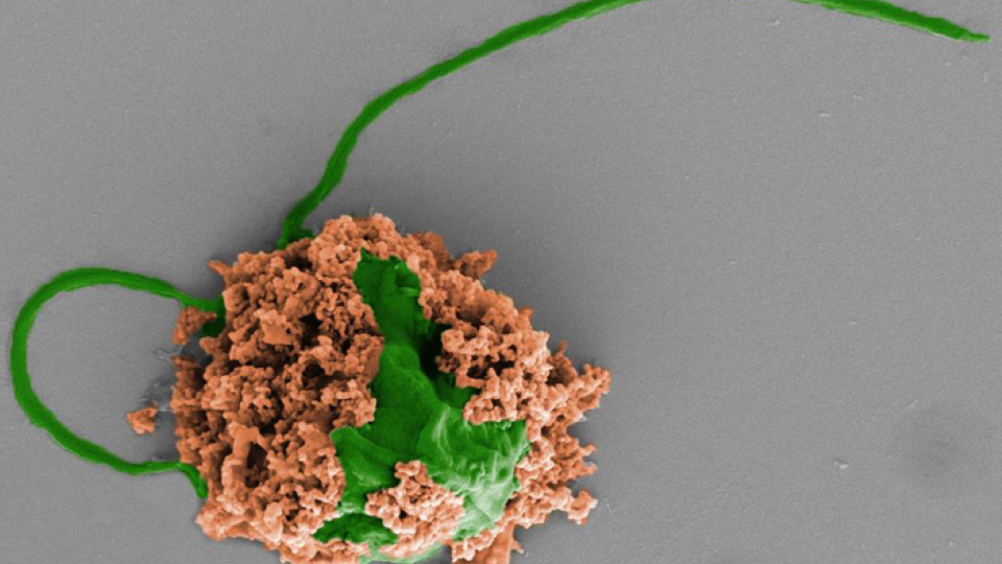Microrobots deliver targeted therapy to treat bacterial pneumonia
Nanoengineers at the University of California San Diego have developed microrobots that deliver targeted medication into the lungs to clear up life-threatening cases of bacterial pneumonia.

In mice, the microrobots safely eliminated pneumonia-causing bacteria in the lungs and resulted in 100 per cent survival after 30 days compared to the untreated mice that died within three days after infection. The results are published in Nature Materials.
The microrobots are made of algae cells whose surfaces are dotted with antibiotic-filled nanoparticles. The algae provide movement, which allows the microrobots to manoeuvre and deliver antibiotics directly to more bacteria in the lungs. The nanoparticles containing the antibiotics are made of biodegradable polymer spheres that are coated with the cell membranes of neutrophils, which are a type of white blood cell. These cell membranes absorb and neutralise inflammatory molecules produced by bacteria and the body’s immune system, giving the microrobots the ability to reduce harmful inflammation, which in turn makes them more effective at fighting lung infection.
The work is a joint effort between the labs of nanoengineering professors Joseph Wang and Liangfang Zhang, both at the UC San Diego Jacobs School of Engineering.
Register now to continue reading
Thanks for visiting The Engineer. You’ve now reached your monthly limit of news stories. Register for free to unlock unlimited access to all of our news coverage, as well as premium content including opinion, in-depth features and special reports.
Benefits of registering
-
In-depth insights and coverage of key emerging trends
-
Unrestricted access to special reports throughout the year
-
Daily technology news delivered straight to your inbox










Water Sector Talent Exodus Could Cripple The Sector
Maybe if things are essential for the running of a country and we want to pay a fair price we should be running these utilities on a not for profit...